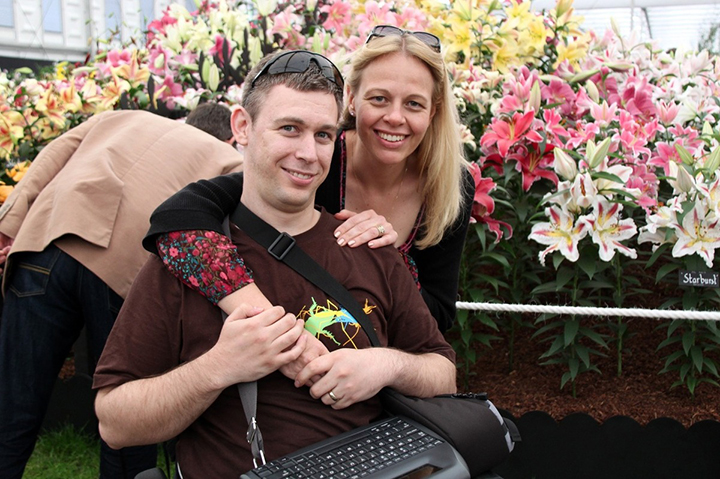
When 12-year-old Martin Pistorius fell into a vegetative state in the late 1980s, the diagnosis of Cryptococci Meningitis was expected to leave him in that condition until he died a short time later. But the boy didn't die. And 12 years after his paralysis, he woke up to tell his story.
The South African boy first started showing signs of the illness when he lost his ability to move, and then could no longer speak. His parents, Rodney and Joan, were told that all they could do is bring him home and make him comfortable until he passed away from the illness.
The family continued to care for Martin for 12 years, waking up at 5 a.m. every day to take him to his special care center where he stayed until picked up by his father. "Eight hours later, I'd pick him up, bathe him, feed him, put him in bed, set my alarm for two hours so that I'd wake up to turn him so that he didn't get bedsores," Rodney stated to NPR in a recent interview.
But Martin was completely aware of everything that was going on around him, as he explains in his book, "Ghost Boy: My Escape From A Life Locked Inside My Own Body."
"Yes, I was there, not from the very beginning, but about two years into my vegetative state, I began to wake up," Martin explained.
The horrific realization hit Martin around age 14 when he says he was aware of everything, just like any normal person. "Everyone was so used to me not being there that they didn't notice when I began to be present again," he says. "The stark reality hit me that I was going to spend the rest of my life like that - totally alone."
From there, things got really dark for Martin. He explains how he was able to disconnect his thoughts and not pursue the lonely emotions going through his mind every day. "You don't really think about anything," he continued. "You simply exist. It's a very dark place to find yourself because, in a sense, you are allowing yourself to vanish."
Martin's story continues to awe as he explains some of the torture he endured at the hands of caregivers. From verbal abuse to sexual abuse to physical abuse, Martin was aware of it all.
But perhaps the worst thing imaginable happened to Martin when his mother once told him that she hopes he died. He struggled with her words, wondering how a mother could ever say that to her own child. "As time passed, I gradually learned to understand my mother's desperation. Every time she looked at me, she could see only a cruel parody of the once-healthy child she had loved so much."
Martin explains in his book that its when he began reconnecting with his thoughts that his body began to slowly recover, too. Now married but still reliant on a wheelchair for mobility, Martin's wife, Joanna, helped re-introduce the now-39-year-old man to the Lord.
"It was she who has taught me to understand the true meaning of the Bible passage we were having read at the service: 'There are three things that will endure - faith, hope and love - and the greatest of these is love.' My life has encompassed all three and I know the greatest of all is indeed love, in all its forms," Martin explains in his book. "I'd experienced it as a boy and man, as a son, brother, grandson and friend, I'd seen it between others and I know it could sustain us through the darkest of times."
Pistorius now lives in Harlow, England with his wife. You can check out the complete 12-minute audio interview with Martin over at NPR's website.














